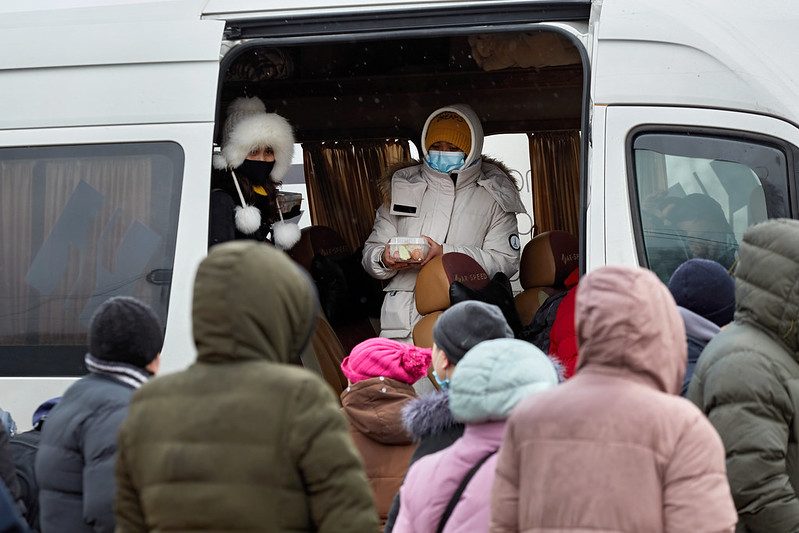4 Myths and Facts About Period Poverty in Ukraine

Period poverty is the inability to afford or access period supplies. It can also include the lack of education about periods and menstrual health or not having proper ways to dispose of used period products. This is a problem that affects countless menstruating individuals worldwide. Due to the ongoing conflict with Russia, the issue is very prevalent in Ukraine. With that being said, here are four myths and facts about period poverty in Ukraine.
4 Myths and Facts About Period Poverty in Ukraine
- Myth: Men make up about 50% of Ukrainian refugees. Fact: Women and children account for almost 90% of Ukrainian refugees. Since the beginning of the conflict in Ukraine in February 2022, about 8 million refugees have fled the country. With 90% of Ukrainian refugees being women and children, (approximately 7.2 out of 8 million) women make up a large majority of people leaving their homes.
- Myth: Periods are not a problem for female refugees. Fact: Female refugees often do not have access to underwear, period products or even a proper toilet. All of this can lead to health issues. Women who are fleeing Ukraine often do not stop to grab menstrual products. When leaving their homes, refugees often have to carry everything they can, and to some, period products are not at the forefront of their minds when they could be taking food, clothes and other necessities. Instead, when a woman starts menstruating she is left to use various unsanitary items, such as old cloth, rather than proper period products, which can cause many health issues such as bacterial skin infections, urinary tract infections, fungal and bacterial infections of the reproductive tract and more. As the Russian-Ukrainian war is a relatively recent conflict, specific research has yet to occur using Ukrainian refugees as the subject. However, a 2017 study conducted by Global One in refugee camps in Syria and Lebanon found that nearly 60% of female refugees did not have access to underwear. More than 60% of them had no sanitary products.
- Myth: No one is doing anything about this problem. Fact: Many people around the world are mobilizing to help end period poverty for everyone, especially Ukrainian women. One great example of a company working to help end period poverty in Ukraine is HeyGirls, a company that Celia Hodson and Kate Smith founded in 2018 that sells period products. Every time someone purchases a HeyGirls period product, it donates the same amount to Ukrainian women in need. Since the crisis in Ukraine began many months ago, HeyGirls donated 22,000 products. One of the founders of HeyGirls said, “As soon as the situation with Ukraine unfolded, we knew we had to take action. It is hugely humbling to be able to provide our period products to Ukrainians in need. In a crisis, periods are often the last thing someone is thinking about, but you cannot stop the biological clock. To date, we have provided more than 20,000 period products for the border relief effort, through some of our community donation partners and local action groups. There is still much more to be done. Our whole aim is to see period poverty completely eradicated. Access to quality period products should be a right not a privilege; and more so in a humanitarian crisis.”
- Myth: Sustainability does not matter when it comes to getting period products to those in need. Fact: Reusable period products will last longer and displaced women will need less of them in the long run. Another organization working against period poverty amongst Ukrainian refugees is Zero Waste Lviv, which is a part of Zero Waste Europe. Zero Waste Lviv works to produce and collect reusable period products to donate to Ukrainian refugees. Made from reusable materials, women are able to wash out their sanitary pads and use them again the next time they need one. This way, there will be less worry about where their next pad or tampon is going to come from.
A Better Future
Period poverty in Ukraine is a major issue. It is possible to end it or at least lessen it with efforts from individuals and companies who are working hand-in-hand to make a better tomorrow for the refugee women of Ukraine.
– Evelyn Breitbach
Photo: Flickr
